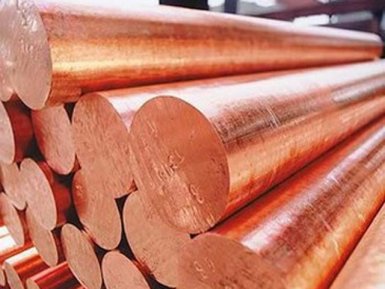- Mainpage
- Directory
- Stainless steel
Austenitic stainless steel

Supplier — AvekGlob Company — offers austenitic stainless steels at a reasonable price from the manufacturer in a wide range of brands and profiles. It is guaranteed timely delivery of metal products to any address specified by the consumer /
Technical specifications
Austenitic steels are non-magnetic stainless steels that contain an increased percentage of chromium and nickel at a low carbon content. Known for their plasticity and resistance to corrosion, austenitic steels are the most widely used stainless steel grades.
The microstructure of such steels contains a face-centered cubic lattice, which has one atom at each corner of the cube and one — in the middle of each face.
This grain structure is formed by adding at least 8… 10% nickel to the original alloy.
Austenitic stainless steels are not subjected to heat treatment. Nevertheless, they can work at cryogenic temperatures if the hardness, strength and resistance to alternating loads are increased. Annealing of such steels with subsequent quenching or rapid cooling restores the initial state of the alloy, and re-cooling, virtually restores plasticity, which is partially lost during the process of strain hardening.
Urgency of application
Austenitic stainless steels are used in:
— car decoration and auto parts production;
-cooking utensils;
equipment for food and beverage production.
Specific branches of the use of austenitic steels are the production of armaments, pipes and tanks for chemically aggressive media, medical and pharmaceutical equipment, cryogenic and food machinery, sanitary equipment, parts of furnaces and heating devices, household appliances, etc. Quite widely austenitic stainless steels are also used in construction and architecture.
Chemical composition
Austenitic nickel-based steels typically contain 18 percent chromium and 8 percent nickel. This is enough to completely turn all the ferrite into austenite. To improve corrosion resistance, molybdenum is added to the austenitic steels. In the austenitic steels there is also bound nitrogen, which promotes the formation of high-strength nitrides, but at the same time increases the porosity. To neutralize the consequences of such gas inclusions, manganese is added to austenitic stainless steels.
Physical and mechanical properties
Austenitic steels are not magnetic in the annealed state, although under cold plastic deformation they can become slightly magnetic. They have good weldability, as well as excellent toughness, especially at low or cryogenic temperatures. Austenitic steels have a low yield strength at relatively high tensile strength.
Technological features and assortment
Metallurgical production of austenitic steels is more expensive than similar ferritic steels, but they are generally more durable and resistant to corrosion.
Manufacturers of various types of rolled austenitic stainless steels supply their products in a wide range of brands and cross-sectional dimensions.
Supplier — AvekGlob Company — offers to buy austenitic stainless steels at prices formed on the basis of European and world standards of production. Buy these products can be wholesale and retail. For regular customers, there is a flexible system of discounts.


